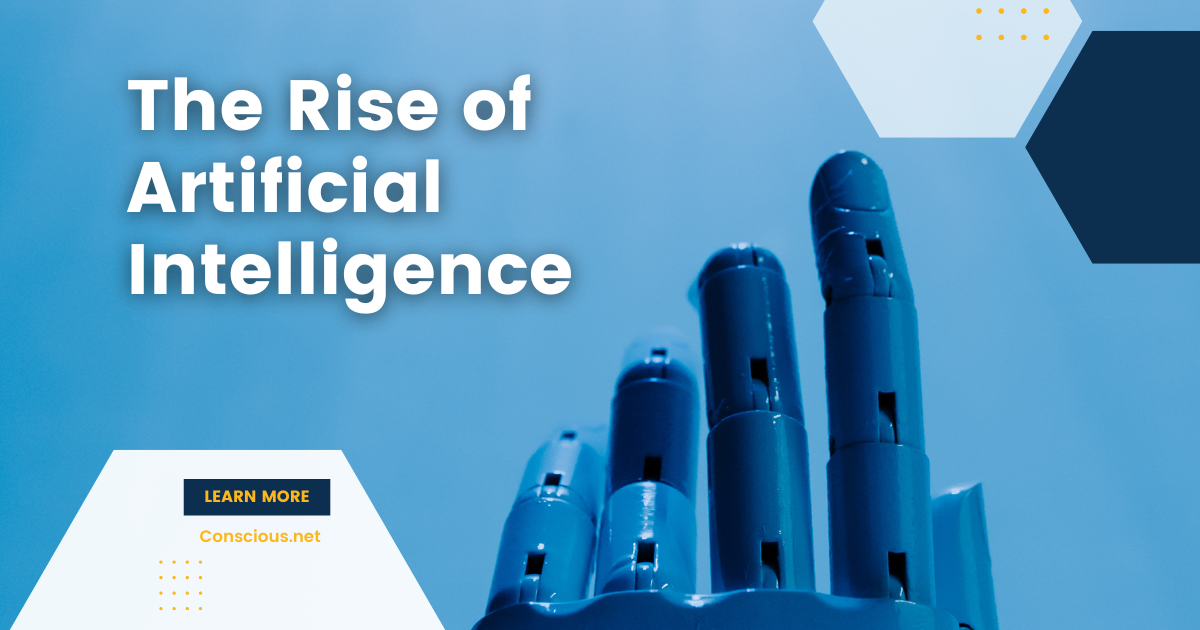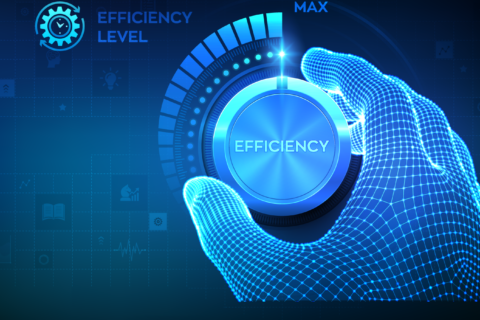The Rise of Artificial Intelligence

Artificial Intelligence (AI) has emerged as a transformative force, reshaping industries, economies, and the very fabric of our daily lives. The journey of AI from a concept to a pervasive and influential technology has been marked by breakthroughs, challenges, and unprecedented potential. Let’s explore more…
Evolution of AI
The roots of AI can be traced back to ancient times, where myths and stories portrayed mechanical beings capable of human-like tasks. However, the formal birth of AI as a scientific discipline occurred in the mid-20th century. In 1956, the Dartmouth Conference marked the inception of AI research, bringing together visionaries who believed in the possibility of creating machines that could simulate human intelligence.
The initial enthusiasm for AI was met with challenges. The computational power required for AI applications exceeded the capabilities of the available hardware. This, coupled with overoptimistic expectations, led to what became known as the “AI winter” — periods of reduced funding and interest in AI research. However, these winters were essential for refining goals and redirecting efforts.
The 21st century heralded a resurgence of interest in AI, fueled by advancements in computing power, the availability of vast datasets, and breakthroughs in machine learning. The advent of Big Data provided the fuel needed for AI algorithms to learn and improve, and cloud computing offered the scalability required for complex AI models.
Machine Learning and Neural Networks
Machine learning, a subset of AI, became a linchpin for progress. Algorithms that could learn from data, adapt, and improve over time opened new frontiers. Neural networks, inspired by the structure of the human brain, gained prominence. Deep learning, a form of neural network with multiple layers, demonstrated unprecedented capabilities in tasks such as image and speech recognition.
Finance and AI
In finance, AI algorithms analyze market trends, manage risk, and optimize trading strategies. Algorithmic trading, powered by AI, executes transactions at speeds impossible for human traders, influencing the dynamics of global financial markets. AI-driven chatbots provide personalized financial advice, transforming the customer experience.
AI in Manufacturing
Manufacturing has witnessed a revolution with AI-driven automation. Robotics and intelligent systems optimize production processes, increasing efficiency and reducing errors. Predictive maintenance, enabled by AI, minimizes downtime by anticipating equipment failures before they occur.
AI and Customer Interaction
In the realm of customer interaction, AI-powered chatbots and virtual assistants enhance user experiences. Natural language processing allows these systems to understand and respond to customer queries, improving responsiveness and engagement. Personalized recommendations, based on AI algorithms analyzing user behavior, are now commonplace in online platforms.
Ethical Considerations and Challenges
As AI rises to prominence, ethical considerations and challenges have come to the forefront. Concerns about bias in AI algorithms, data privacy, and the potential impact on employment have sparked important conversations. The responsible development and deployment of AI technologies require careful consideration of these ethical dimensions.
AI systems learn from data, and if that data contains biases, the AI model can perpetuate and even amplify those biases. This has raised questions about fairness, especially in applications like hiring processes and criminal justice. Efforts are underway to develop techniques that mitigate bias and ensure equitable outcomes.
The vast amounts of data required to train AI models raise concerns about privacy. Personal data, when mishandled, can lead to breaches and unauthorized access. Striking a balance between utilizing data for AI advancements and protecting individual privacy remains a complex challenge.
The automation capabilities of AI raise concerns about job displacement in certain industries. However, history has shown that technological advancements also create new job opportunities. As routine tasks become automated, there is an increasing demand for skills in areas such as AI development, data science, and AI ethics.
The Future of AI
The trajectory of AI’s rise points toward a future where its influence will continue to expand. Several trends and developments suggest exciting possibilities and challenges on the horizon.
The intersection of AI and quantum computing holds promise for solving complex problems exponentially faster than classical computers. Quantum AI could revolutionize fields such as cryptography, optimization, and materials science, opening new frontiers for exploration.
AI’s integration with Augmented Reality (AR) creates immersive and interactive experiences. From gaming to training simulations and virtual tours, AI enhances the realism and adaptability of AR applications, influencing how we interact with digital information and the physical world.
AI is increasingly being applied to scientific research. From predicting protein structures to accelerating drug discovery, AI expedites processes that were once time-consuming. This has the potential to accelerate scientific breakthroughs and contribute to solving complex global challenges.
The rise of AI marks a pivotal moment in human history, where our creations are becoming capable of emulating, and in some cases surpassing, certain aspects of human intelligence. As AI continues to evolve, it holds the promise of addressing pressing global challenges while raising critical questions about ethics, societal impacts, and the future of work. Navigating this era of accelerated technological advancement requires a thoughtful and collaborative approach, ensuring that the rise of AI aligns with the values of fairness, accountability, and human well-being.
Conscious Networks has over 20 years of experience providing technology consulting and strategy services to businesses of all sizes including developing active information security service protocols and policies.
Call us today for a free consultation and system assessment.



